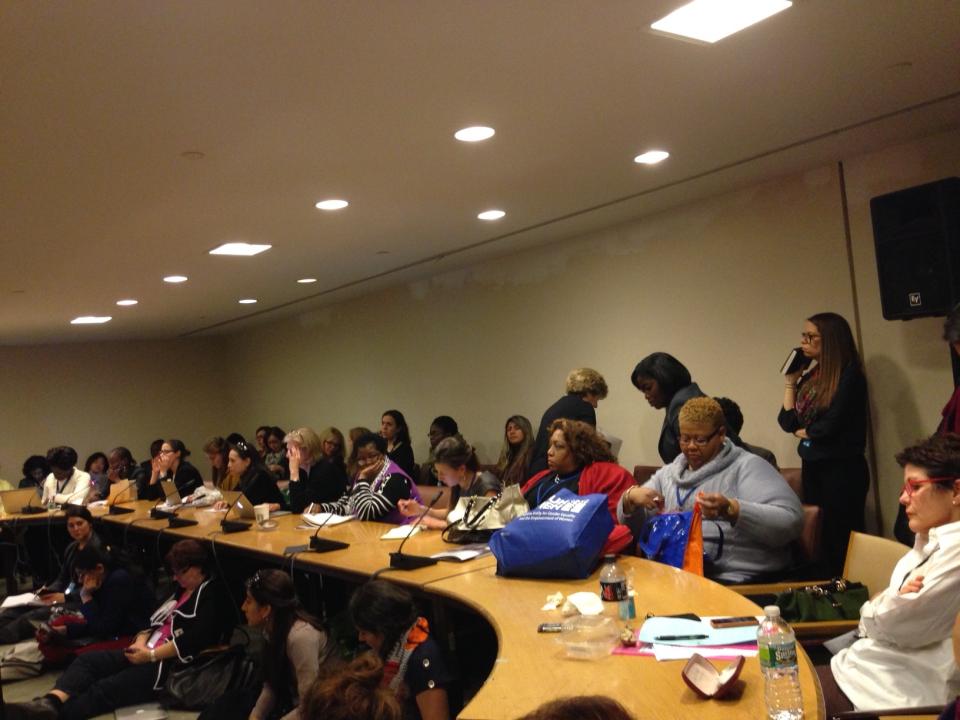
What did we do for two weeks in New York? We participated in one of the most interesting and combative meetings for the advancement of women’s rights worldwide. The annual session of the Commission on the Status of Women (CSW) is a major event on the calendar of governments and women’s organisations because it is where discussions take place on advances and unmet goals under the Beijing Platform for Action and other agreements reached at the Fourth World Conference on Women in 1995.
Almost 20 years after the signing of this Platform by all of the world’s governments, the monitoring of fulfillment and the need to continue reaffirming and advancing the achievement of women’s rights continues to draw concerted attention and heated discussion from government and civil society representatives. These debates are crucial to ensure that the agreements reached in Beijing do not merely remain on paper or as good intentions frozen in time.
When we reread the documents drafted in Beijing we are amazed by the foresight and wisdom of the individuals, movements and organisations that contributed to them from the most diverse backgrounds and places around the world. The concepts and measures defined in them and the agreements reached remain so palpably relevant that they continue to hold authority and validity for the most controversial debates and issues of today.
For those of us who are committed to working for women’s right to communication in all spheres, with a special emphasis on development through the internet and other information and communications technologies, Section J of the Beijing Platform continues to provide an important framework for advancing these rights, with particular consideration for rural, indigenous and low-income women, as well as those who live in the poorest countries where advances in technological infrastructure are minimal and access to even the simplest mobile phones or community internet service centres is hindered by geographical, economic, cultural or technological barriers.
When it comes to progress in grasping the importance of access to and effective use of ICTs in the achievement of women’s rights and their full participation in society, we can report that at this session of the CSW, this concept was clearly expressed in the meeting documents and there were no discussions challenging its inclusion among the final agreed conclusions.
Now we must continue emphasising other ICT-related issues that continue to be areas of concern on the women’s rights agenda: violence against women perpetrated through the use of the internet and other ICTs; the effective use of ICTs to promote and defend sexual and reproductive rights; women’s freedom of expression online and their freedom of association to work together for advances in the full exercise of citizenship, equality of opportunities and gender equity.
Looking ahead to the Beijing+20 conference next year, it is important to reassess Section J, reaffirm the commitments established there, and define new challenges to tackle in the coming years, because while many women are now immersed in the information and knowledge society, there are still a great many more who are barely aware of this reality. When we talk about gender justice, we must strive to achieve the consolidation of women’s equal opportunities and equal participation in all spheres of life, as well as equal enjoyment of all of the benefits of current advances.
This edition of GenderIT.org offers reflections on the advances and setbacks at the recently completed last session of the CSW in interviews with Jan Moolman, Jac sm Kee and Dafne Sabanes Plou from the APC Women’s Rights Programme. It also includes an interview with Alberto Cerda of Derechos Digitales by Erika Smith, addressing issues that APC and partner organisations have been discussing and promoting on the women’s rights agenda for years.
- 14075 views






Add new comment